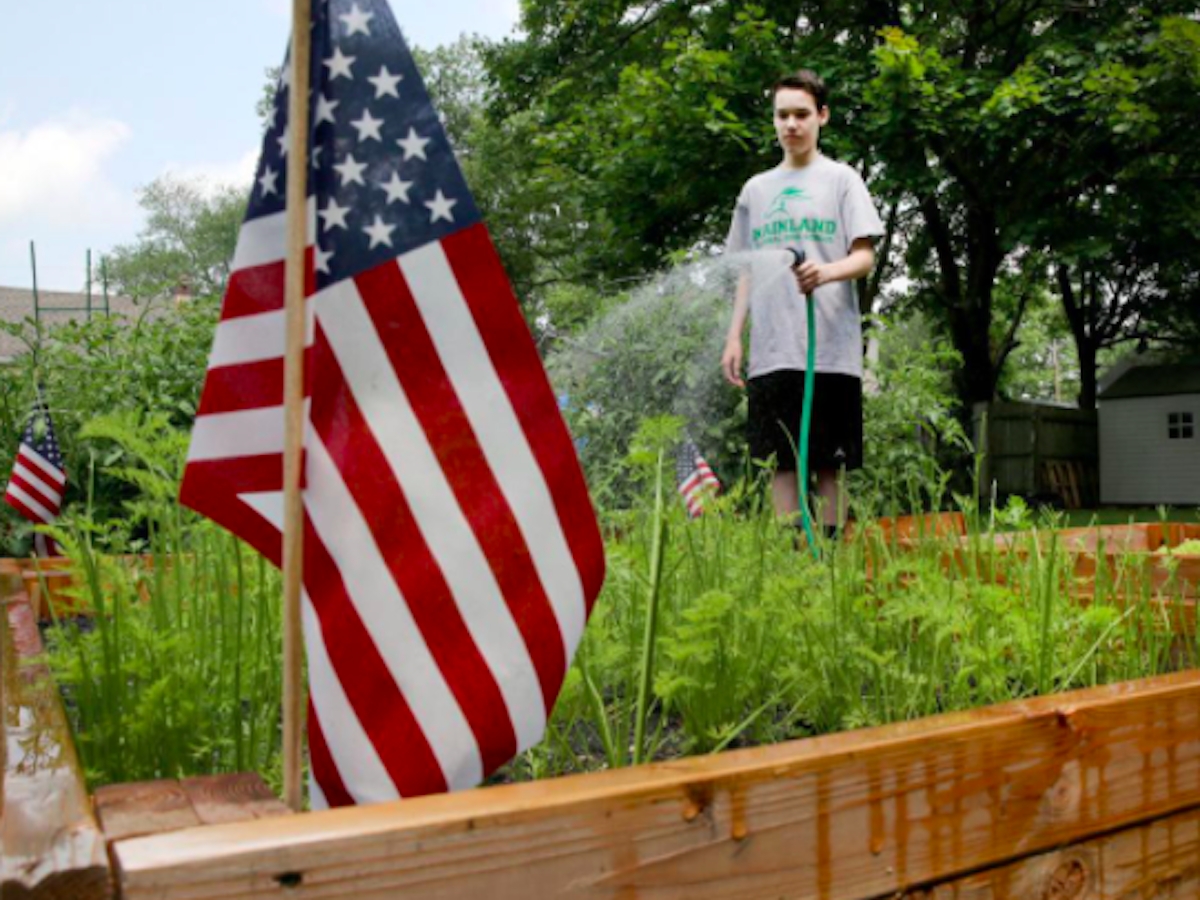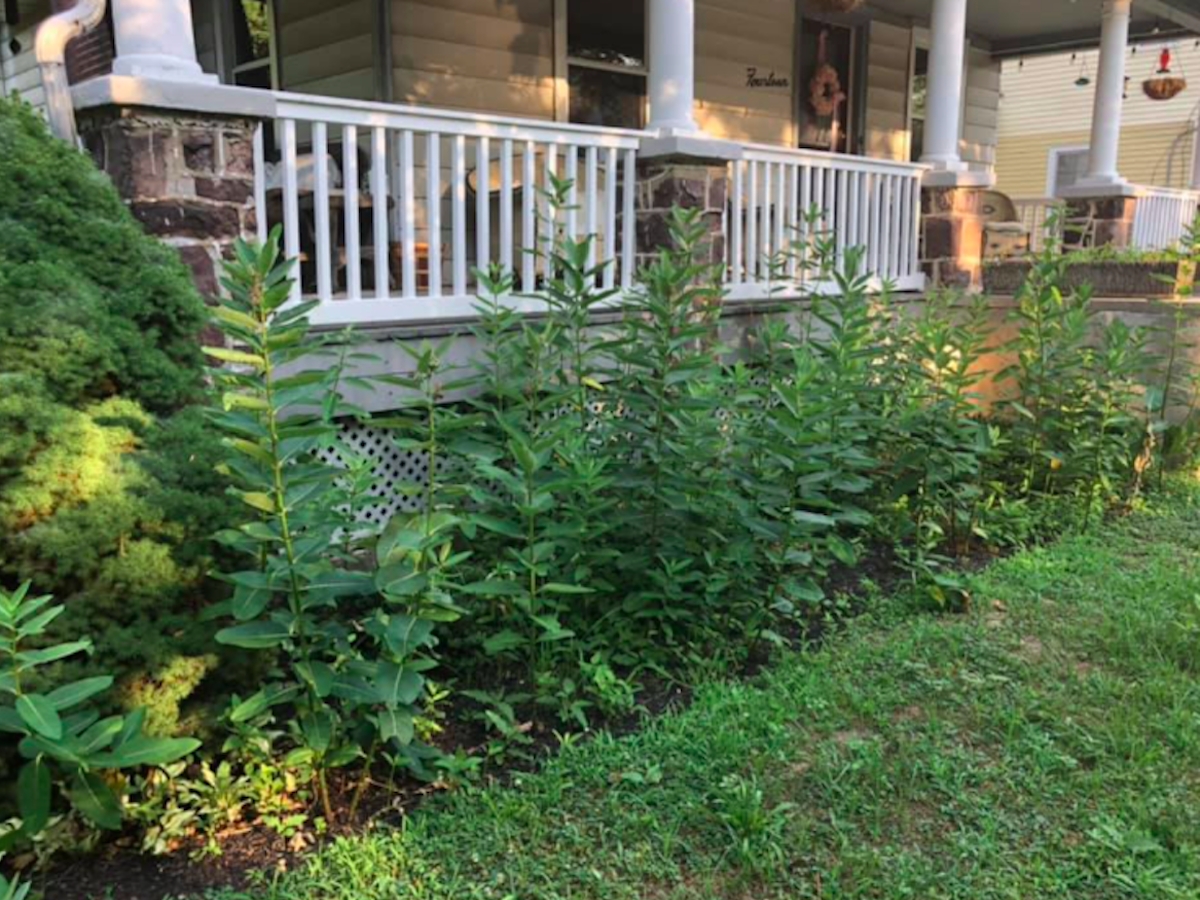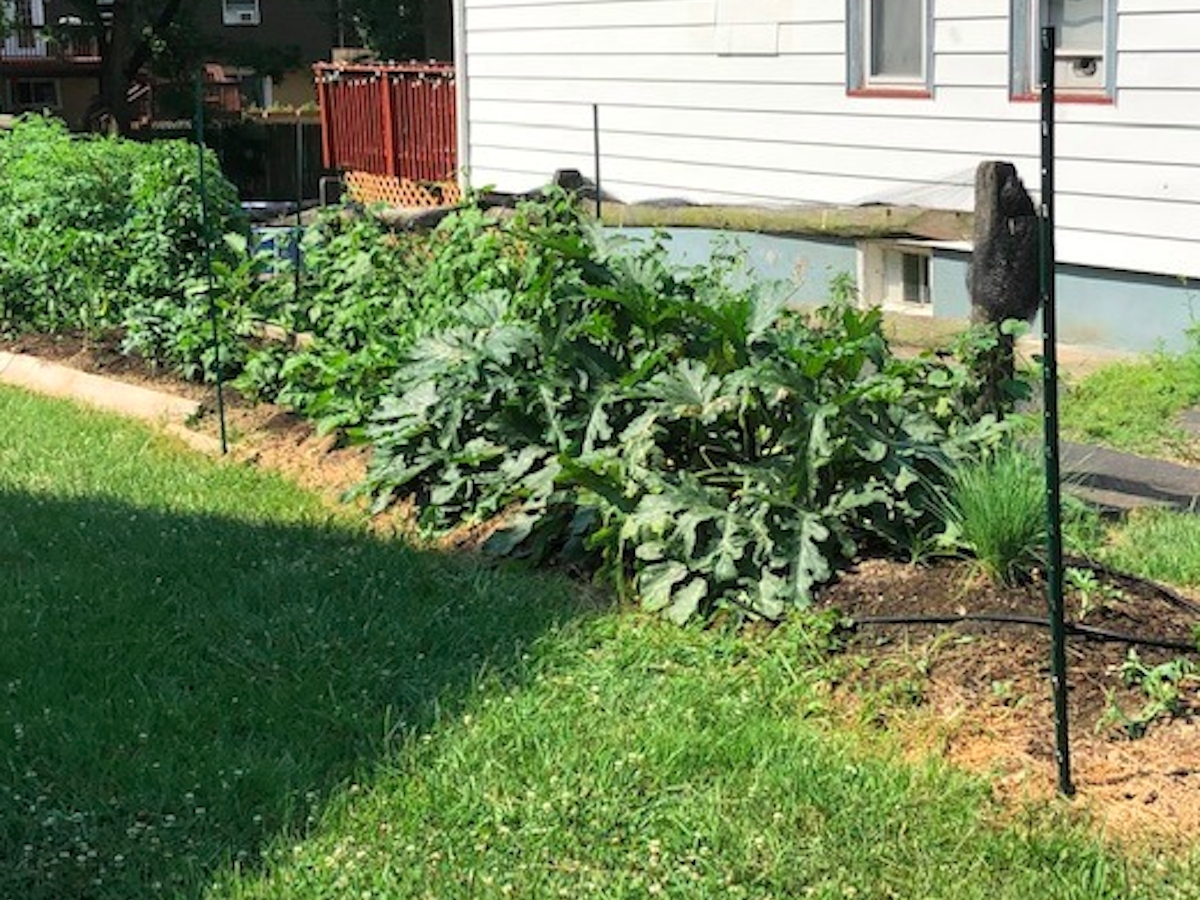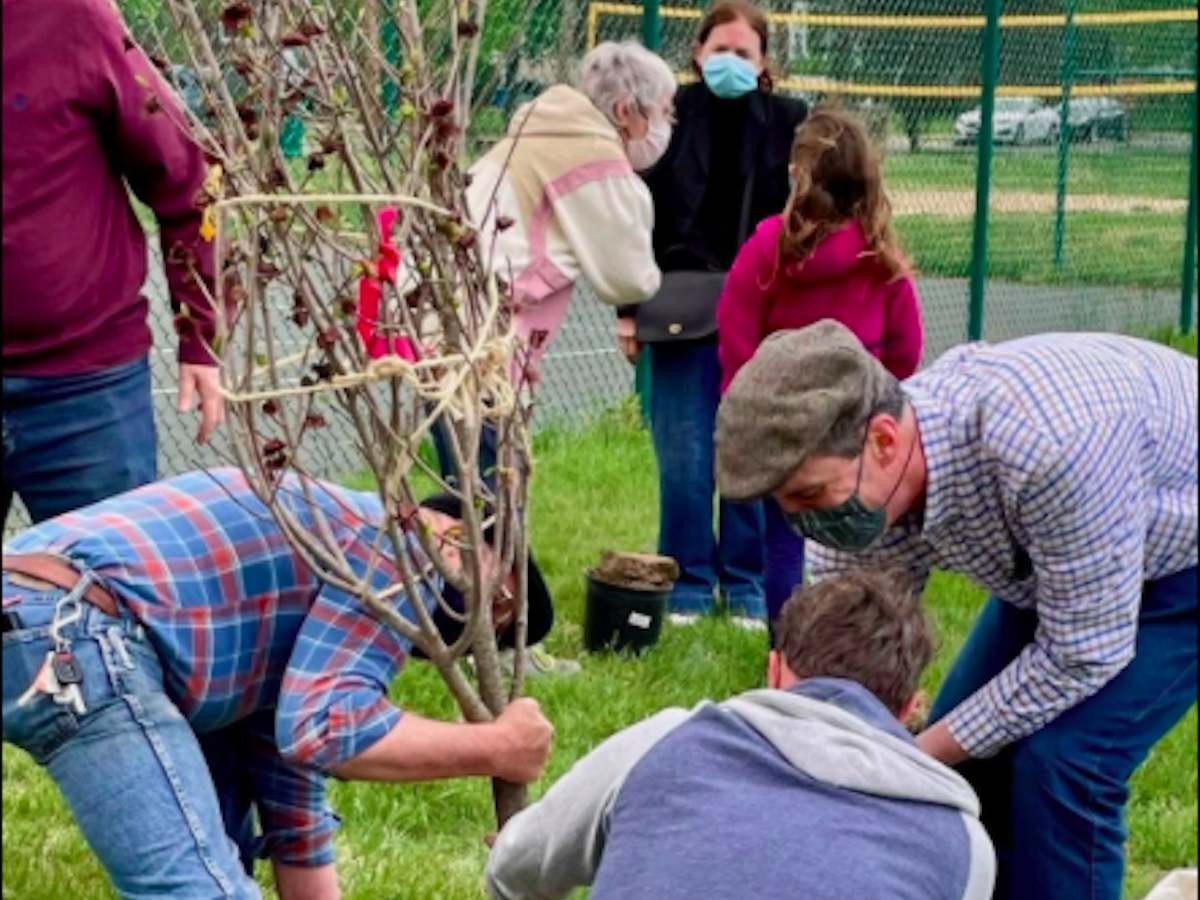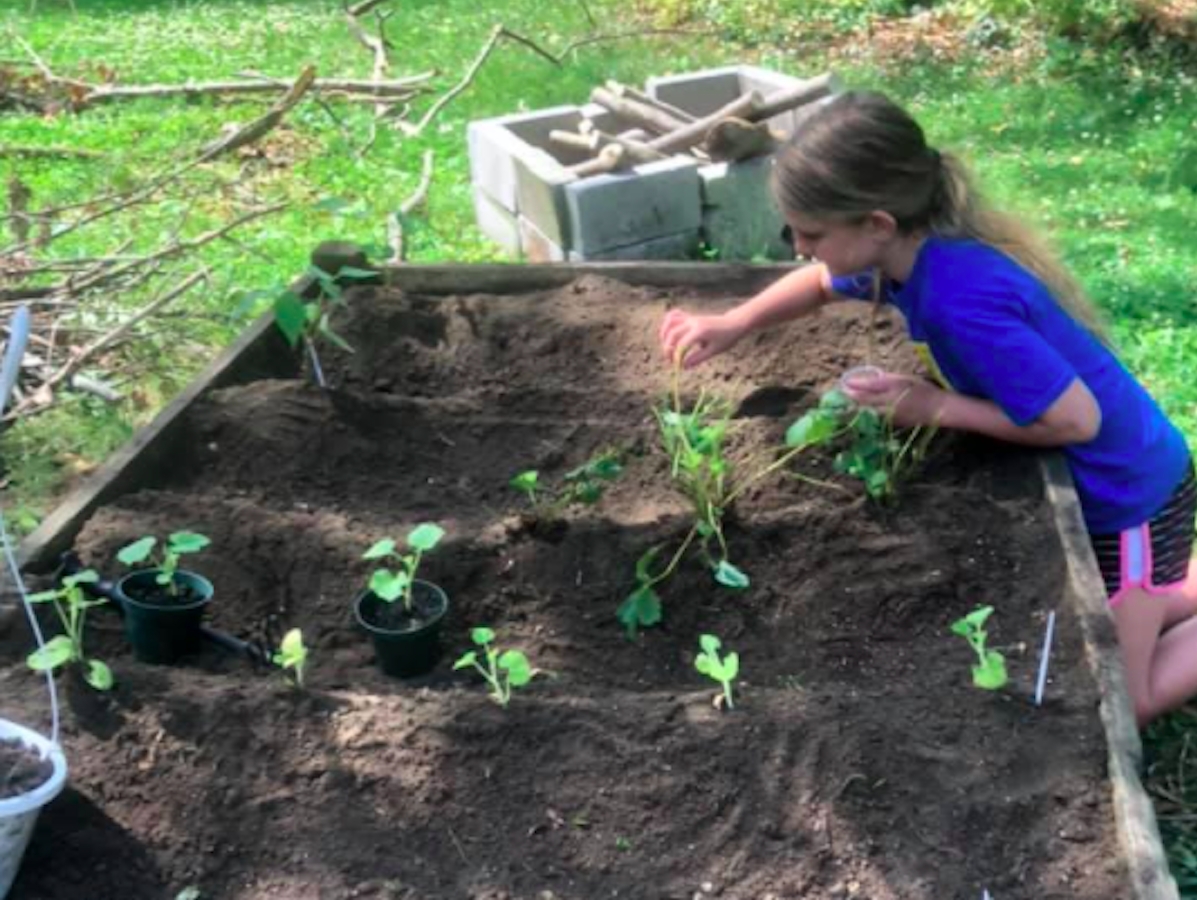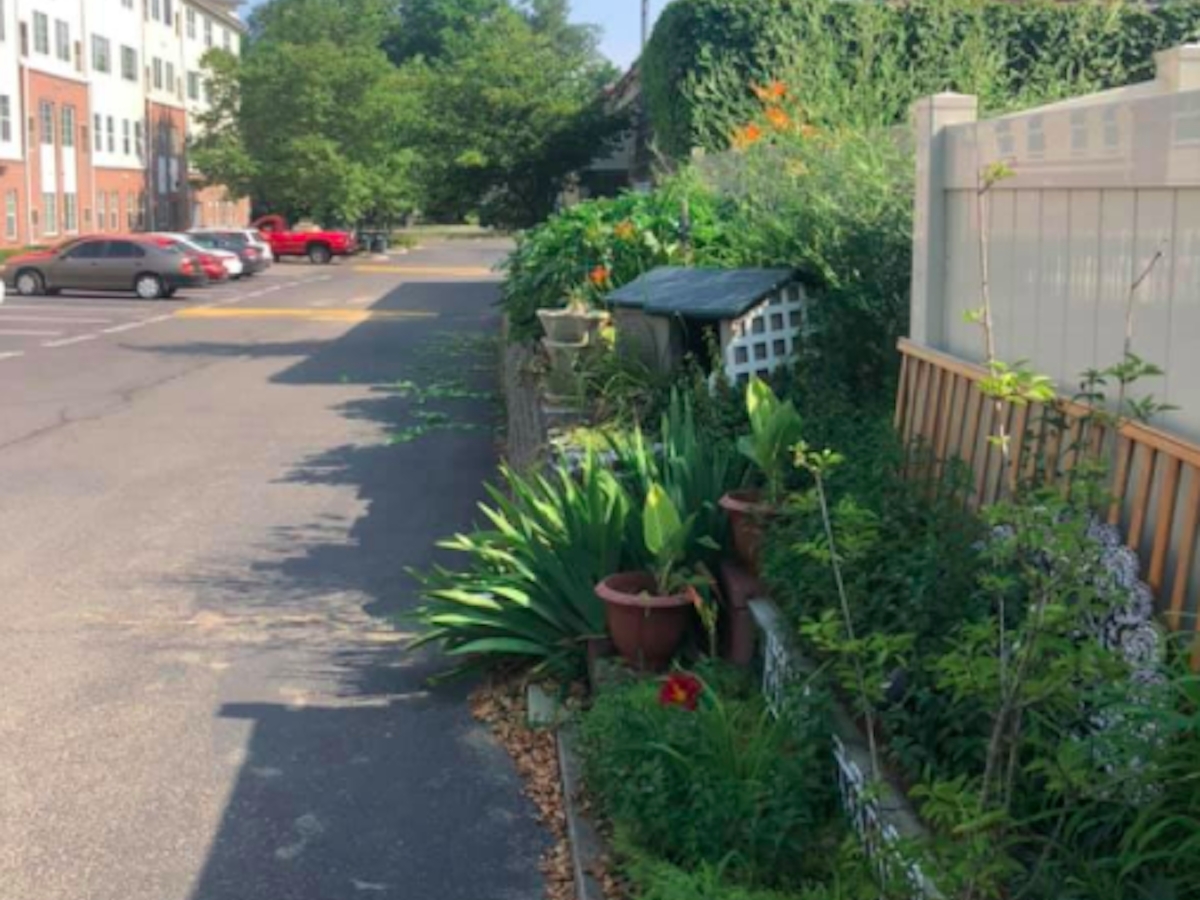Bradley Furgeson, 14, of Northfield, has raised more than $15,000 by applying for grants that have helped refurbish the local American Legion Post and start a garden that supports veterans and the local food bank. Inspired by his
Fight Lanternflies With Milkweed
Milkweed is a beautiful American wildflower, garden plant and a magnet for butterflies and pollinators. As the host plant for caterpillars of the monarch butterfly they playing a critical role in the monarch’s life cycle - and as an added benefit - are poisonous to that invasive spotted lanternfly. Spotted lanternflies are attracted to and will feed on milkweed, unaware that it's poisonous, and become sick or die as a result. Incredible Edible Merchantville encourages residents to plant some milkweed in your garden to protect our beautiful oak and maple trees from the damage, weakening, loss of leaves and susceptibility to illness that lanternflies can cause. Once it takes root, milkweed is a perennial that will thrive for years to come and spread quickly. Four species of native milkweed are found in most states: the Whorled Milkweed, Common Milkweed, and Swamp Milkweeds, and Butterfly Weed.
Pollinate for Mom
Every May, adults and children alike are tasked with a daunting mission-to somehow thank our mothers for everything they’ve done for us over the years. Classic Mother’s Day traditions include a sentimental card, breakfast in bed, and of course, flowers. This Mother’s Day, take the opportunity to celebrate not only your mother, but also the mother we all share — Mother Earth — by purchasing and/or planting pollinator-friendly flowers. Here are some helpful suggestions for pollinator-friendly flowers that are native to the Mid-Atlantic region: Lanceleaf coreopsis, Wild indigio, Purple coneflower, Bottle gentian and New England aster.
Landscape Registry is Growing
During the month of July Incredible Edible Merchantville added two gardens to our Sustainable Landscape Registry. We welcomed the Bouvier Family's garden on July 16th. They have a plot at the Community Center and are growing a variety of tomatoes, squash, cucumbers, peppers, and some flowers for pollinators. At home they also grow herbs, green onions, and flowers, including milkweed for monarchs. On July 27th, Mary-Noelle at sent pictures of her garden at 48 Volan Street. She and her neighbor, Sam, at 54 Volan Street share their gardens. Mare is full sun and she’s part shade, so she does things like lettuces and leafy greens and I do peppers, tomatoes and eggplant. Sharing the garden is a lot of fun since we get to plan, shop, dig and plant together and the kids get into it too, plus there’s always someone to water if you’re away! Sustainable landscaping is a goal of our program. Send pictures and a description of your garden to This email address is being protected from spambots. You need JavaScript enabled to view it. to join!
Planting Paw Paws
IE Chronicles Growth
In early 2018, inspired by the actions of a community in Tordmoden, UK, Joan Brennan and Betsy Langley started planting the seeds for a town-wide sustainability program called Incredible Edible (IE) Merchantville. By the fall of that year, Merchantville’s first community projects were under way, and the ideas of community garden sharing, greening public spaces, produce donations, monarch habitats, and pollinator gardens were born. Bolstered by a group of passionate volunteers they set out to educate our small town about the value of nurturing environmental stewardship to promote a culture of healthy living, provide food security and foster a sustainable future through edible landscapes. Collaboration with the town Garden Club, The Green Team, borough officials, businesses, schools, churches and other community organizations have led to small project expansions including multiple communal garden spaces and insect habitats. In 2020 more than thirty-five residents have joined the effort as part of their This email address is being protected from spambots. You need JavaScript enabled to view it. many dedicating a portion of their produce to food security donations at the Grace Church Food Pantry. IE was also an active partner in Merchantville's successful Sustainable Jersey Bronze certification application. For Incredible Edible Merchantville, the vision of believing in the power of your own potential and creating a kind, confident, and connected community through the power of food is just beginning! They were able to chronicle their journey in this video with the able assistance of Ashley Brennan.
IE Registry Update
Alongside the driveway at the Chestnut Station Senior Complex is a hidden gem of an Incredible Edible Garden and the perfect example of a a creative way to transform an unused hardscape into a sustainable landscape. This garden is carefully nurtured by resident volunteer, Francis Mcgarry, and produces annual seasonal vegetables that support food security and nutrition for many seniors living in the complex. Incredible Edible Merchantville, maintains more than a dozen small action garden/pollinator projects in town and has added 17 residential and business gardens to their Sustainable Landscape Registry this year. We applaud every small action in the Borough that promotes land stewardship, food justice and sustainability. Register your garden by sending pics & info to This email address is being protected from spambots. You need JavaScript enabled to view it..


